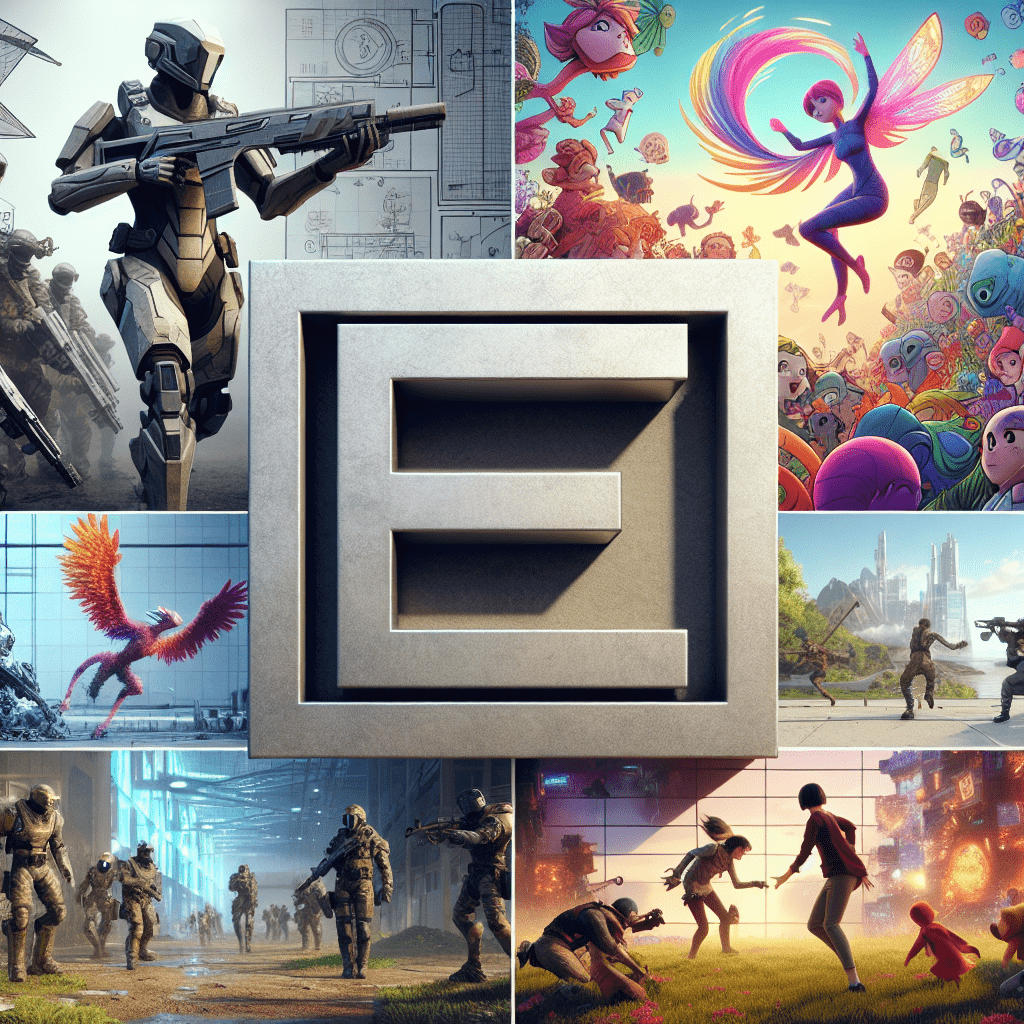The Rise of Epic Games: A Leading Force in Entertainment and Technology
Epic Games, founded in 1991 by Tim Sweeney as Potomac Computer Systems, has become a significant player in the video game industry and beyond. Initially starting as a one-man company, Epic Games transformed from a small-scale software developer into a multibillion-dollar enterprise. This article delves into the company’s journey from its humble beginnings to becoming the creator of one of the most popular video games of all time, Fortnite, and explores how its Unreal Engine has revolutionized the creation of video game content and cinematic productions.
Early Years and Evolution of Epic Games
Foundation and Initial Success
Epic Games began its journey in the 1990s during the rapid development of PC gaming. It found early success with games such as ZZT and Jill of the Jungle. These early milestones paved the way for further developments that would define Epic’s role in the industry.
Development of the Unreal Engine
The Unreal Engine was first developed by Epic Games in 1998 for use in the shooter game ‘Unreal.’ This first iteration marked a step forward in game development technology – boasting more robust graphics and better performance than many engines of that time. Thanks to this tool, smaller developers could start creating games with high-end visuals without building a game engine from scratch, democratizing game design and development.
Success with Gears of War and Diversification
In the mid-2000s, Epic Games cemented itself as a critical developer with its Gears of War series, which became one of the most successful franchises on the Xbox 360 platform. Through licensing the Unreal Engine to other developers, Epic expanded its business model from just developing games to also facilitating game creation for other studios.
Fortnite and Mainstream Breakthrough
The Inception of Fortnite
Fortnite debuted in 2017 and was developed using Unreal Engine. It initially launched as a paid co-op survival game. But it was the release of its free Battle Royale mode that turned Fortnite into a phenomenon.
Impact on Gaming Culture
Fortnite grew rapidly in popularity, helped in part by its accessibility on multiple platforms, child-friendly visuals, and free-to-play nature. The game integrated live events and partnerships with significant franchises such as Marvel, Star Wars, and musicians like Travis Scott, leading to a merger between gaming, music, and cinematic entertainment.
Financial Successes of Fortnite
The financial impact of Fortnite on Epic Games cannot be understated. Its massive number of microtransactions through the sale of ‘V-Bucks,’ used for purchasing cosmetics and the battle pass, has generated billions in revenue for Epic, significantly altering its business trajectory.
Expansion Beyond Gaming: Unreal Engine’s Impact on Different Industries
Unreal Engine’s Versatility
Beyond video games, Unreal Engine finds utility in various other sectors like architecture for visualization and automotive design for prototyping vehicles virtually. It has even stepped into the film and television industry with high-profile projects adopting it for special effects.
Prominence in Hollywood
The most notable use has been in ‘The Mandalorian,’ where sets are projected onto enormous LED screens known as ‘volume,’ entirely powered by Unreal Engine. This not only reduces post-production time but also allows actors to work within immersive environments rather than against green screens.
Competing Against Giants: Market Leadership by Challenge
Epic Games Store Controversy
With financial muscle from Fortnite, Epic opened an online storefront named ‘Epic Games Store’ aimed at challenging Steam’s dominance. They offered developers more generous profit-sharing arrangements, much to the chagrin of some gamers who were dissatisfied with practices such as exclusive release deals.
Legal Battles with Big Tech
More recently, Epic found itself at loggerheads with Apple over App Store policies following an attempt to bypass Apple’s payment systems within Fortnite. While these interconnected conflicts unfolded – referred to as both legal brawls and principled stands against monopolistic practices – they have critically shaped conversations about digital marketplaces.
Notes
Conclusion
Epic Games has evolved considerably since its inception three decades ago. From a small computer game developer to one of entertainment technology’s most potent forces – it has left an indelible mark on multiple industries. Through innovation, strategic partnerships, and engagement with popular culture, along with assertive challenges to established industry paradigms, Epic remains at the forefront of a rapidly evolving digital landscape.
Image Description: The image is a montage featuring Epic Games’ logo at the center – a stylized letter ‘E’ inside a square outline – surrounded by scenes from various iterations of its flagship products such as Gears of War characters in combat gear holding futuristic weapons, colorful Fortnite characters performing emote dances amid bright landscapes, and screenshots depicting impressive graphics powered by Unreal Engine in different stages of multimedia production including video games design layouts, architectural visualizations, and large-scale LED set backgrounds used in television production.
